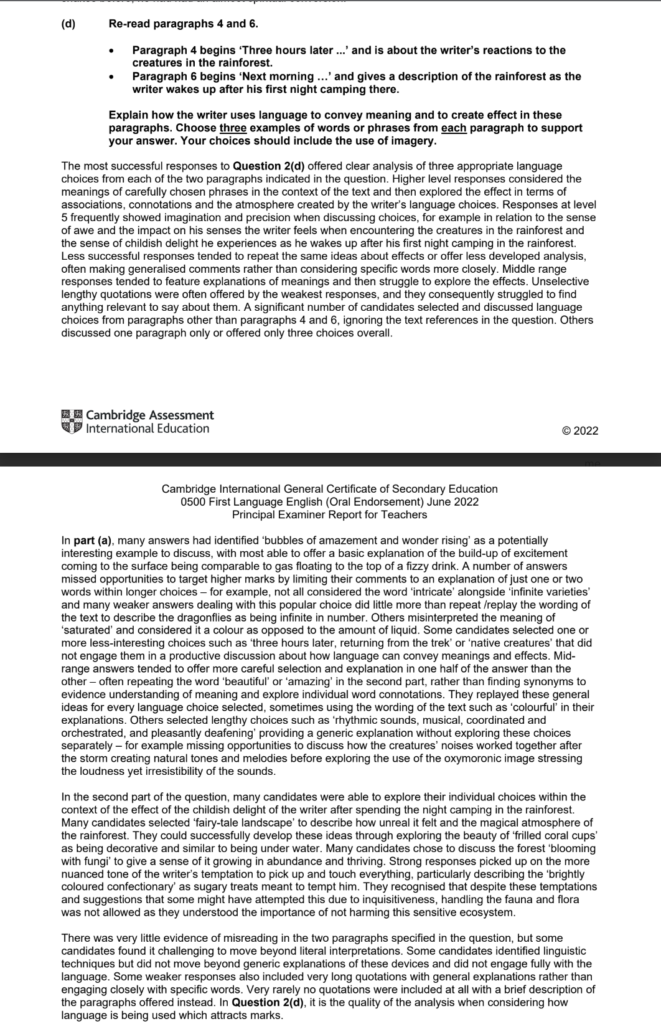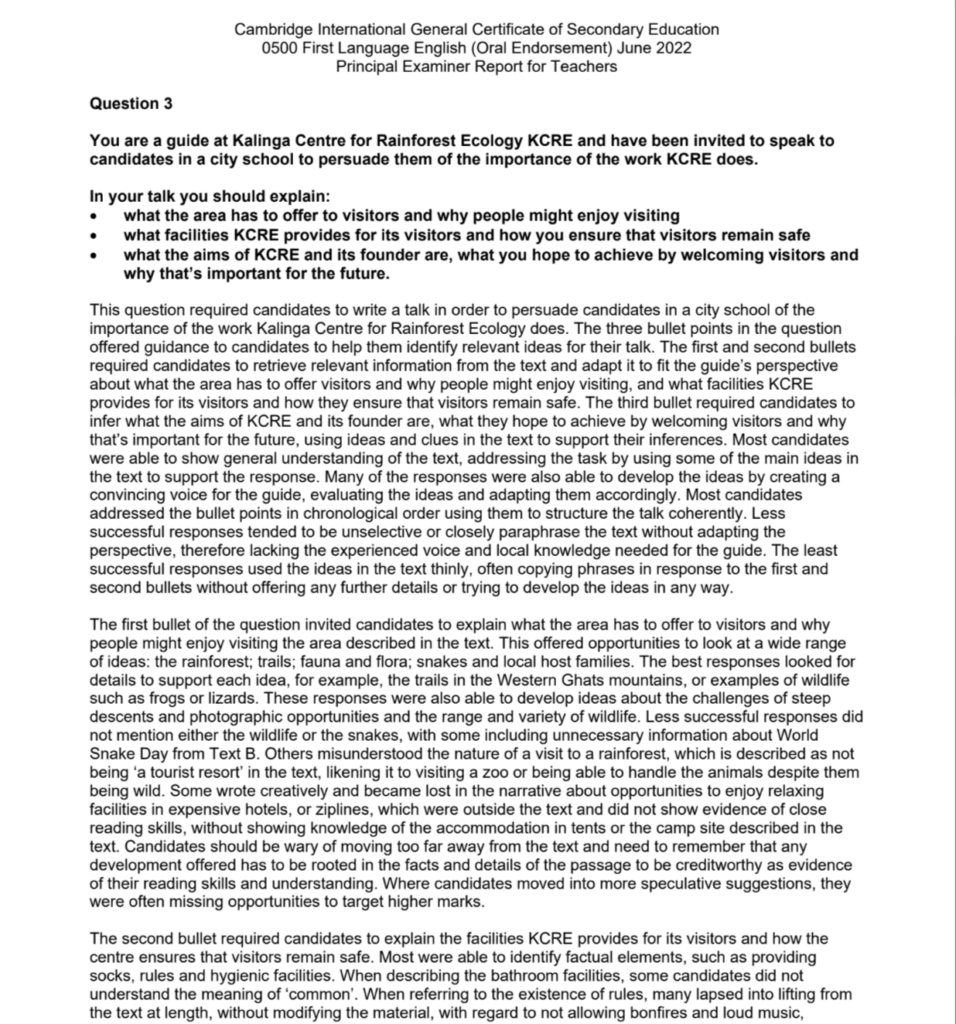The scene is familiar. You wake up one morning and the page of the calendar turns.
Yet again.
Imperceptibly, you’ve crept one day closer towards that test, that exam.
Maybe time passed and you didn’t realize it.
Maybe it wasn’t all that important to you.
Maybe the only reason that you realized that time had passed was because somebody from up above was nagging you, day after day, telling you…
“Wake up!”, they say.
“You need to study! Don’t you care about your future? What will you do if you rank number 5 again, but from the bottom of the class?”
It’s not a great feeling, is it?
You stare at the calendar from where you are, and then you look at the books that you have to read, then you stare at the calendar again.
Before long, you sigh, you sit down, and you begin scrolling TikTok.
I know that feeling all too well.
The sense that time is running out.
The feeling that a large, unstoppable force is coming to you.
The feeling that no matter what, you must run away – all too familiar, yet so common to each one of us, a feeling that we should almost always rather avoid, by human nature or instinct.
The teacher, the parent, the educational consultant would tell you, if only you had planned, you would have averted this situation:
The ocean, they would say, is something that cannot be boiled.
The task is something that must be broken down into meaningful and manageable chunks.
Yet at the end of the day, human beings are human beings, subjected to human constraints, inclinations, and also patterns of thought.
It is almost inevitable that somewhere along the way, our foot may slip.
The divine plan that we thought we would execute, we sway away from, forgetting what we intended to do, we find ourselves running away as our hands move from the book to the phone, from English into videos of restaurant workers dancing.
And before we know it, there we are, in the thrall of sweet escape.
I want you to confront that feeling of hopelessness and remember, for a quick moment, that the time has not run out.
You may have that oppressive feeling as if a sword of Damocles hangs over you and before long, perhaps, the usual suspects shall appear. Doubt, guilt, self-hatred – the sensation that “no matter what I do, it will change nothing.”
“Whatever I read at this point, they will just be words.”
There they are, the self-defeating thoughts come one after another, building from a trickle into a flow and eventually into a deluge that comes to define every single day, before which the pages of the calendar themselves are washed away in words that you told yourself, messaging that eventually led the days to come and pass, eventually leading you to the day of the trial, on which you decided that nothing would have changed anyway, and you call the outcome fate.
I want to remind you that it is not too late. You may think that you are unable to do anything. But that is not the reality.
True, you may be one step closer towards a challenge that you find difficult to overcome.
True, you may not be able to accumulate the skill, the perspicacity, the knowledge, ability, that you hoped for or that would bring you beyond the boundary line.
All true.
No problem whatsoever.
But have you ever thought to ask yourself, can it really be that your efforts will mean nothing?
Can it truly be that even if you step forward at this point in time, you will not move further?
What you do in this single moment, you think is but a simple drop in the bucket.
A step that once taken is the end of it.
But I believe something different.
Because I believe that how you made that decision, feeling as if nothing would change, will repeat itself.
If nothing matters in the future, then surely nothing matters now.
Because what is the future but something that is forever becoming the present?
And what is the present, but something that is continually evolving into the past?
When you speak of future outcomes, of which there is uncertain and contingent nature, remember that they are not as far away as you think. Because eventually, they will come.
You say you’ve abandoned the journey because you cannot get the grade that you want.
The A*, the scholarship, anything else at the end of the day.
But right now, I want you to wake up.
Wake up, child.
Did you think this was just about the grade?
Did you forget why you came to this website in the first place?
You didn’t come to just find a random strategy in order to excel.
Well, that was certainly part of it. But if that was all you thought, then you had missed the entire point. Because the point here was that you would learn to appreciate language, its gift, and everything that it would bring along with it.
This was something that had always existed in a plane apart from just your worldly or material achievements. And you are saying now that it is meaningless simply because you only have a month and some change in front of you to make the difference that you thought in the moment of weakness that you should be able to make?
Well, since you are here right now, instead of browsing another 15 TikTok videos that will eventually fade into nothingness but a memory of a dancing girl with no particular talent, you may as well recall for a moment that everything in life builds upon everything else. Because everything is holistic, whether you think so or you don’t.
Every single one of your efforts, in a way that may be unknown to you at this point or at this stage of your life, will somehow count, if not necessarily enough in such a way that it will transform your grade, then definitely still in terms of transforming your mindset towards approaching this world.
Because you are here, you know that there is a chance.
Because you are here, you know that you have the power to change something. Yet you are spending your time avoiding the problem, transforming even this resource into material for procrastination rather than using it in its best form.
Leave that shattered thought behind.
You do not need it and it does not serve you.
Why should you allow an occupier to stand in the fertile territory of your mind when it does not help you?
You don’t believe me?
You want to give up?
Go ahead, drop your First Language English. Maybe you can pick up Cantonese or something like that, although for some reason I don’t think that an IGCSE for that exists.
Or you could do better.
You could read a single sample essay. You could then write a single essay. You could compare it on that particular day, thinking about the marking criteria, which in your head seem to make sense, yet somehow they differ from what you see on the site.
You could read a single article, thinking about the language it uses, how it affects you, what it impacts, the small little things that I ask you to focus upon, but that often you may ignore. You can ask a friend to read your work, sign up for a last-minute workshop, take a brief moment to reflect on what you are doing, why you want this grade, whatever grade it is, as you realign yourself to the future.
Remember, everything counts.
Even if you feel that you’ve not been running fast enough, don’t look away. The finish line is still ahead. The race didn’t end. And what you need to do right now is move ahead. It doesn’t matter what placing you get, because at the end of the day, you’re all going to the same destination – The destination – not of a grade, not of a specific checkpoint – certainly that of becoming better than you were, even if just by a little bit, as you move forward into a future rife and full of possibilities.




